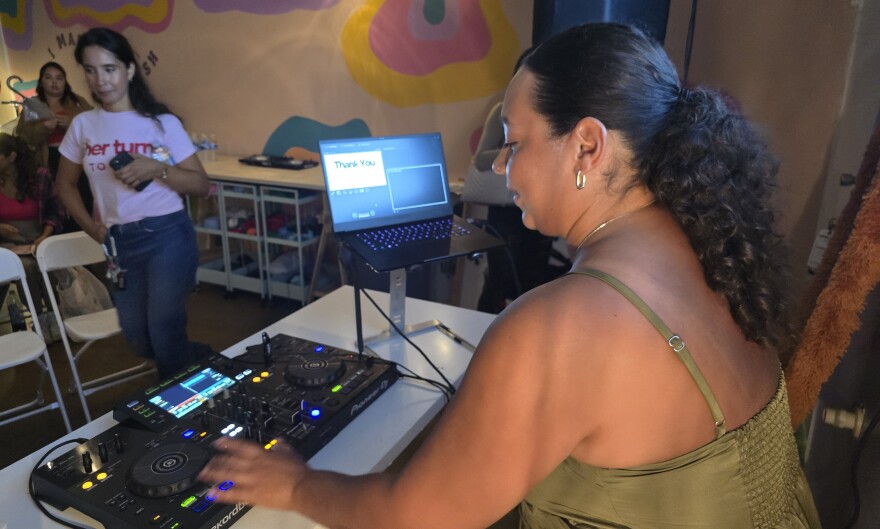Health Care Cuts in Budget Bill
President Donald Trump signed what he’s dubbed the One Big Beautiful Bill into law earlier this month. In addition to tax cuts, including for upper income brackets, it will also make cuts to federal health care programs including Medicaid and weaken the Affordable Care Act. The Congressional Budget Office estimates Medicaid will see cuts of almost one-trillion dollars over ten years, meaning nearly twelve million Americans may lose their health coverage.
The bill also neglected to extend current subsidies to the Affordable Care Act – colloquially known as “Obamacare” – subsidies that are schedule to expire at the end of this year. The CBO predicts this will lead to a doubling of premiums for many recipients – and the loss of care for another four million. Engage speaks with Central Florida Public Media health reporter Joe Mario Pederson who dug deep to look at the impact of the sunset of this ACA subsidy in our region.
Medicaid has served as a safety net providing healthcare for low-income Americans since its inception in 1965. Currently, more than 70 million Americans are partially or fully covered by Medicaid – this includes children, seniors, individuals with disabilities and working adults without access to affordable healthcare coverage.
Sean Shaffer of Chuluto is one of many Central Floridians who have been dependent on Medicaid benefits. The twenty-one year old who was born with Down Syndrome loves to act – his favorite place is on the stage and he has acted with multiple theater companies. As a comfortably middle-class family, the Shaffer’s didn’t receive any Medicaid benefits while raising Sean but . I in 2020, when he was 18, his father passed away. Sean’s coverage shifted to his father’s firefighter benefits, provided by Medicare. Now that he’s is 21, his mother, Michelle Shaffer, says the scope of his coverage has been reduced, and the uncertainty surrounding the future of both Medicaid and Medicare coverage has left her very concerned.
The Death Penalty in Florida
Janet Acosta was working on the production floor of the Miami Herald in April of 2000 when she took a lunch break in her van, taking a breather from the hot, loud print room where she spent her shift. A stranger approached her van, asked for a cigarette and proceeded to punch her in the face. The man, Michael Tanzi, tied up Acosta and drove her to the Keys. After draining her bank account, Tanzi drove Acosta to Cudjoe Key, where he strangled her and left her body.
Acosta’s friends reported her missing and police located Tanzi with her stolen van. He was arrested, tried and sentenced to death. Tanzi was executed by the state of Florida in April of this year.
Last week, Governor DeSantis signed a death warrant for another convicted murderer on Florida’s death row – Kayle Barrington Bates is scheduled for execution on August 19th – he is expected to be the tenth inmate executed in Florida this year. Engage connected with voices with varying perspectives on the use of the capital punishment – from an attorney who has prosecuted multiple death penalty cases to a member of the region’s clergy who signed a letter asking the governor to put a pause on executions.
Joshua Rhett Miller is an investigative reporter with Newsweek . . . and he sat in on Michael Tanzi’s execution as a witness. He joined ENGAGE to speak with Cheryn Stone about what he experienced.
The perception of prosecuting attorneys in popular culture is one of just stewards of the law, full of swagger and confidence, protecting the public with the might of the American Justice system at hand. In reality, prosecutors are human beings, susceptible to the same stresses and emotions as anyone else. And for some attorneys, prosecuting cases demanding the death sentence is part of the job.
For more than a decade, Ryan Williams served as an assistant state attorney in Florida’s Fifth and Ninth judicial circuits, trying many capital cases. He is currently working in the private sector, but he recalls the weight of the responsibility that he carried as a prosecutor, and that included applying the law when it involved the death penalty.
The pace of executions in Florida this year has concerned members of the state’s clergy. With eight executions completed in 2025 and at least two more on the calendar, 64 people representing churches of various denominations across Florida signed a letter asking DeSantis to pause the executions and take time to talk with the clerical community about using the death penalty.
The Reverend Abby Thornton-Hailey is the pastor of the New Covenant Baptist Church in DeLand – and one of the signers of the letter.
Her Turn To Spin
This is “Her Turn To Spin” – the instructional DJ program designed by and for women. It was created by sisters Demi and Kayla Alvarado – Demi teaches the classes, Kayla manages the business and marketing. On a Wednesday night in July, fifteen women gathered to learn the basic essentials to starting out as a DJ.



